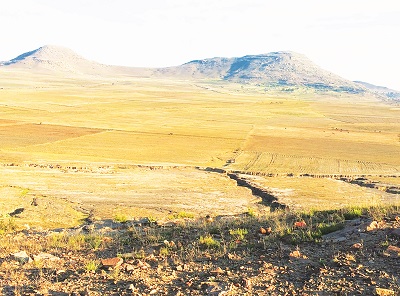By: Thoboloko Ntšonyane
MASERU – Lesotho, ranked 121 out of 125 nations in the 2023 Global Hunger Index, faces an alarming crisis with about 70% of its population dependent on agriculture according to available data.
The impact of El Niño-induced droughts only deepens their plight, highlighting the urgent need for intervention in the face of a humanitarian disaster.
In order to cushion families from severe drought and the imminent food insecurity, the European Union (EU) extends social security support to affected families.
This is per the statement issued by the EU last week.
The European Union (EU) has announced a contribution of €200,000 (approximately LSL 4,030,000) in humanitarian funding to support the most vulnerable. These and those that have been severely impacted by an El Niño-related drought and parched crop fields,” reads the EU statement.
According EU, this funding will be directed by the Lesotho Red Cross Society to deliver critical assistance to over 2,500 families across four of the hardest hit districts; Maseru, Mohale’s Hoek, Qacha’s Nek, and Quthing.
Beneficiaries are set to receive cash grants to mitigate the effects of rising food prices. They will also be given agricultural inputs and seeds, such as maize and beans, for planting in the summer.
During the virtual Extraordinary Summit of the Heads of State and Government of the Southern African Development Community (SADC) held in May, a regional humanitarian appeal of $5.5 billion, equivalent to just over M100 billion, was launched to bolster domestic resources in affected member states that include Lesotho.
This initiative, responding to the impacts of El Niño-induced droughts and floods, aims to galvanize national, regional, and international partners to support comprehensive efforts in mitigating the effects on vulnerable communities.
The funds, when available, will enable a coordinated and robust response to the crisis and the intervention efforts in areas such as food security in Lesotho to assist the most vulnerable populations.
The Prime Minister Rt Hon Ntsokoane Matekane represented Lesotho in this summit.
According to the World Food Programme (WFP) 24.1% of the population of Lesotho live “in extreme” poverty.
“Food insecurity remains a chronic challenge, hindering the country’s development and progress towards zero hunger. Despite some economic growth, Lesotho has been unable to address rural poverty and promote inclusive social development,” WFP says.
EU goes on to mention that the training will be provided to community-based farmer groups on food preservation and climate-smart agriculture, alongside the rehabilitation or construction of water facilities within affected communities.
An awareness campaign will also be mounted to educate communities on water treatment techniques and effective water management practices.
“This funding is part of the EU’s overall contribution to the Disaster Response Emergency Fund (DREF) of the International Federation of the Red Cross and Red Crescent Societies (IFRC). The EU’s support aims to alleviate the suffering of those affected by the severe drought and promote resilience in the face of climate-related disasters,” EU announces.


